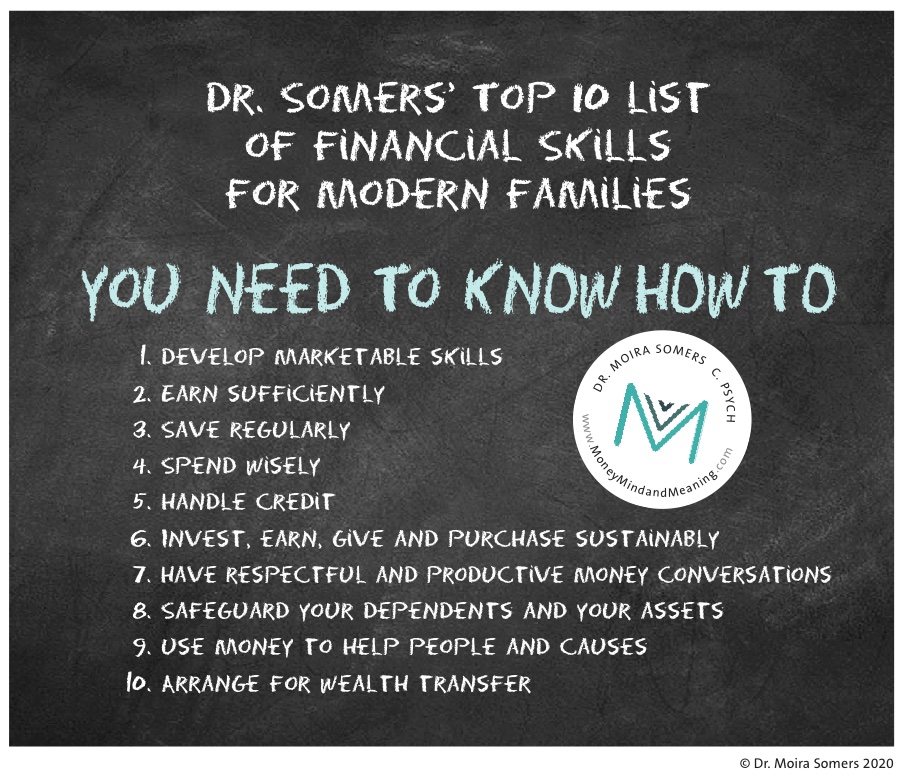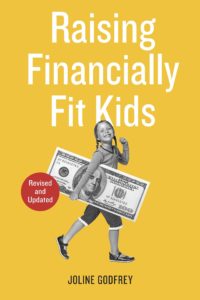
What families (including yours) need to know
There have been a lot of transitions in my household over the past year, with more yet to come. Some of these Big Life Events have been long anticipated and much celebrated; others have simply arrived out of the blue, and have ushered in as much joy as a bunion.
One thing these events have had in common? They’ve all had financial implications – not just for money management (that’s been the relatively easy part, actually), but for expectation management between and across the generations.
While navigating these expectations, I pulled out a list I created some time ago for the advisers and families I consult to. The list was my take on the most important financial skills needed for modern families. It was a helpful reminder to stay on top of what my own family needs to know and do. It was also an occasion to update it, in light of such things as growing rates of mental health problems and dementia, the endless ingenuity of fraudsters and scam artists, and the travails of our planet. Here is my Top 10 list of 21stCentury Financial Skills:
- Develop marketable skills
- Earn sufficiently
- Save regularly
- Spend wisely
- Handle credit
- Invest, earn, give and purchase sustainably
- Have respectful and productive money conversations
- Safeguard your dependents and your assets
- Use money to help people and causes
- Arrange for wealth transfer
Give the list even the quickest of once-overs, and you’ll see that these items are not simply fact-based ones. If you’re a financial adviser or a financial literacy teacher, you can’t just stick these items in a newsletter or exam and then rest assured that the readers will be equipped to make good decisions forevermore. If you’re a parent, you can’t just give Lecture #438 and assume the kids have learned what they need. That’s because every single one of these life skills needs to be paired with emotional intelligence in order to come to life. For example:
Earning adequately requires self-respect and good reality testing;
Spending wisely requires impulse control and emotional self-awareness;
Having good money conversations requires empathy and courage of conviction; and
Using money to help others requires social consciousness and healthy boundaries.
Fortunately, family life is one of the most natural places to bring together emotional intelligence and money management skills. Any time we open up about the financial gaffs we’ve made, or the values we hold deeply, or what helps or hinders our progress towards our goals, we’re cultivating a skillset that is crucial for modern life.
Whether you’re working with other people’s families or are neck-deep in the delights of your own, it’s helpful to keep in mind the developmental nature of these skills. The items on my list are the task of a lifetime. They are not even remotely done with by the time a child leaves home; indeed, they take us to the end of our days.
So take heart: Everyone can get better at this stuff! Things like empathy, communication, and self-regulation can improve with effort and (often, but not always) with age. And there are always skilled professionals – therapists; accountants; clergy; lawyers; financial planners– who can help us when we slip up, get stuck, or lose the path. The more such people we have in our network, the better equipped we are to help others and ourselves.

One of the aphorisms of the Financial Transitionist® Institute is, When life changes, money changes; and when money changes, life changes. My household’s recent transition events have given me a renewed appreciation of this proverb. As we enter a new decade, I wish you, your family, and the families you serve the same thing I wish for my own: May you navigate life’s changes with skill and grace and tenderness…and a whole lot of laughter.
Interested in learning more about the various stages of money maturity? I’ve found no better book than Joline Godfrey’s Raising Financially Fit Kids.




